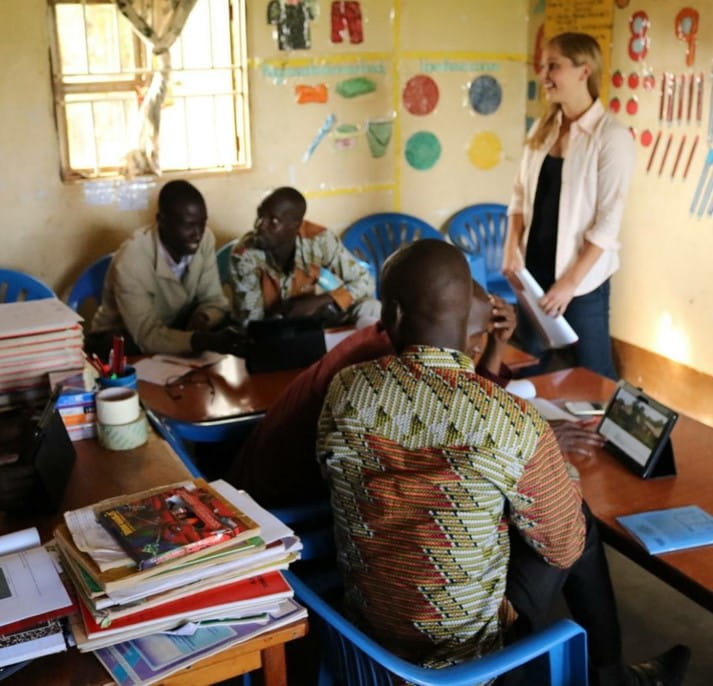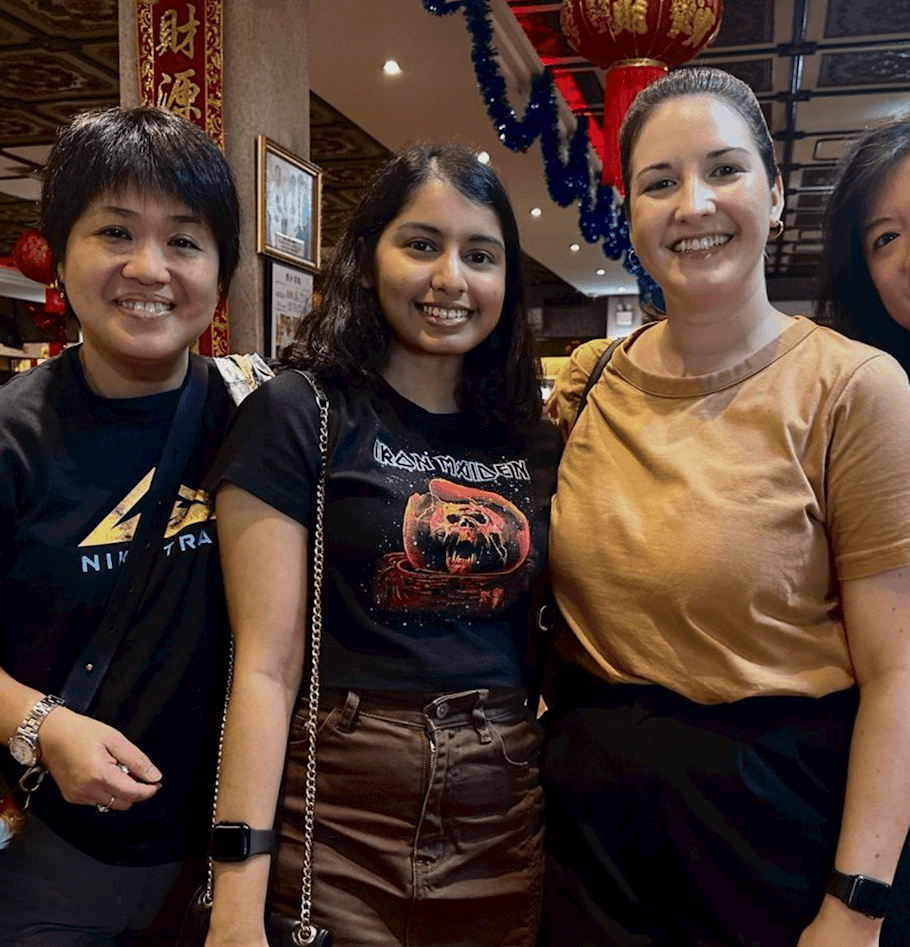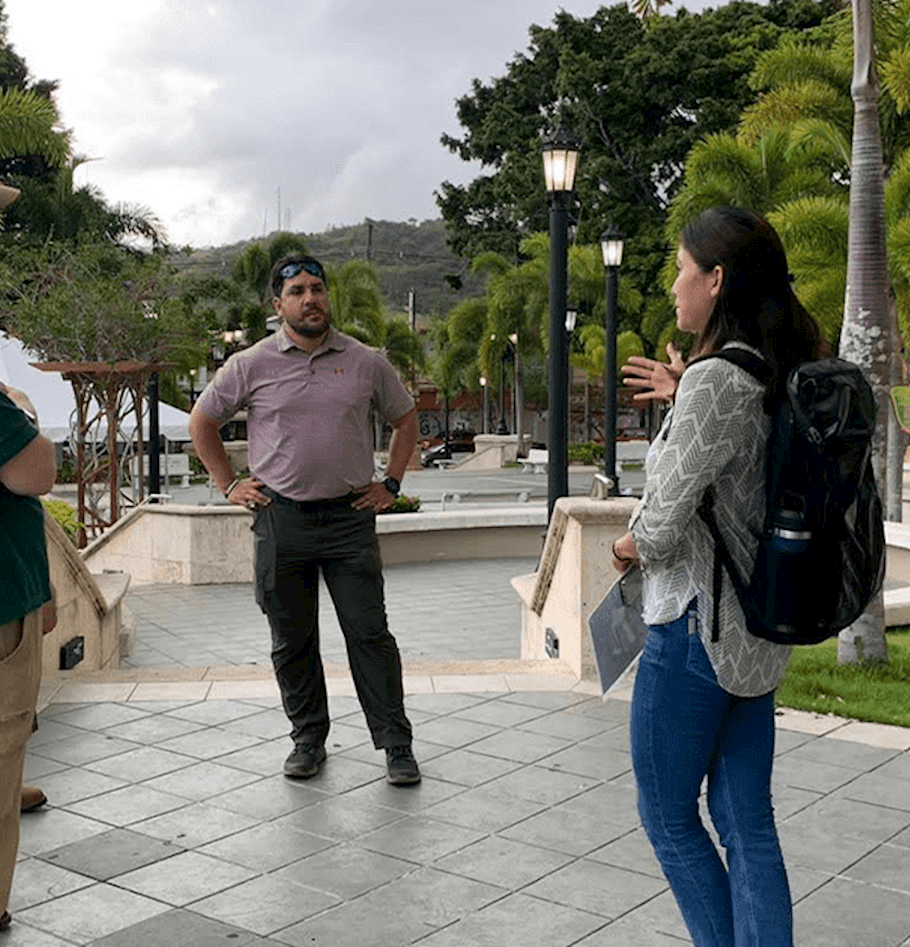
June 2018 | Point of View
Fischer Fellowship: Providing technology solutions to educational resources
Fischer Fellowship: Providing technology solutions to educational resources
I just returned home after spending the last seven months working with The World Literacy Foundation, a small organization in Australia dedicated to bringing quality education to off-the-grid communities.
When I’m not volunteering abroad, I am a 3rd-year consultant focused on implementing CRM solutions for my firm’s clients in the States. My company, West Monroe Partners, sponsors a select few employees every year to take an extended amount of time off to volunteer with an organization of their choice through a program called the Fischer Fellowship. It's an amazing program that allows employees to focus on a passion that they normally wouldn't have the time or resources to support, while helping West Monroe’s mission to develop the next generation of leaders—both at work and in our communities
Why Education is Important to Me
Education has always been something that I placed a lot of value on while growing up. My Grandparents are originally from Greece and came to the U.S. during the war. While they didn’t start with much, the one thing they made sure every one of their children had was an education.
With their values deeply rooted in me, when I was a sophomore in college, I helped one of my professors start an entrepreneurship education program for young women in India. The program evolved into what is now known at Purdue as the Institute for Social Empowerment through Entrepreneurship and Knowledge (ISEEK). We created an entirely free course designed for smart phones in India. A high population of women in India are illiterate, so we structured the course around symbols, visual animation, and auditory learning.
It wasn’t until I worked with ISEEK that I recognized the importance of having options.
The women I met in India were some of the most curious, driven, and hard-working people I had met in my life. If these women were literate and had access to learning materials, they would be unstoppable. However, without education, they didn’t have access to opportunities that might have helped to improve their situation.
Therefore, I went to work in education and support literacy programs in developing countries. The World Literacy Foundation addresses the problem at its roots and provides solutions that can change the cycle of poverty.
My Fellowship
When I started my fellowship in September of 2017, The World Literacy Foundation was in the process of starting a new program called The Sun Books Initiative. This program provides solar-powered tablets to teachers that are pre-loaded with an extensive collection of books, games, audio books, song recordings, and other content, putting a virtual library in the hands of teachers where textbooks and classroom materials are scarce.
When I arrived, the program was a little less than a year old. A pilot program in the northern region of Uganda was gaining traction fast with international partners, local partners, and local schools. However, they had a very small team and very little time to dedicate to collecting and creating material. After a couple of weeks focused on learning about the program and helping them with a bit of professional housekeeping, I started forming a team of part-time volunteers to help us collect and create quality educational materials. Our team of 10 volunteers included phonics specialists writing books, grad students conducting research, graphics designers and children's artwork artists making the books look amazing, musicians writing and recording songs, former/current teachers finding open-sourced books that resonate with the correct age levels, and digital content curators turning everything into a format we could upload to the tablets.
After our four-month content creation push, it was time to put everything into action. My coworker Len and I took off to Uganda in the middle of February to start working with our local teachers and partners in person and bring on a few new pilot schools. We spent a month doing workshops with government organizations, presenting our program to possible partners, working with teachers who had been using the tablets during the previous semester, training new teachers who would be starting with the program this next semester, and talking to head teachers to coordinate any necessary program changes.
We were able to bring on two new pilot schools as well as start three new partnerships while we were there. With a classroom sizes ranging from 60-100 students, this program is currently reaching about 15 teachers and more than a thousand students.
We were even able to squeeze in a few fun activities on the weekends such as rafting on grade-five rapids on the Nile and driving through a wildlife reserve where we saw giraffes, warthogs, elephants, lions, leopards, and buffalo.
Once the programs were implemented, we made our way to Oxford to help the rest of our team at the World Literacy Foundation put on the 2018 World Literacy Summit. This event was incredible to be a part of. There were hundreds of diplomats, academics, non-profits, and corporate representatives from all over the world. During the conference, I was able to meet like-minded people from all kinds of organizations as well as present with one of our new partners from Uganda who came all the way to Oxford to help socialize our program. It was an honor to help my coworkers organize it and even more of an honor to meet everyone who attended.
The conference was an impactful way to wrap up my fellowship, but I can't wait to see where this initiative and the organization goes in the future. I plan to stay involved through supporting the content creation process and we’ve already set up bi-weekly calls to stay in touch and continue making plans for what’s next!

